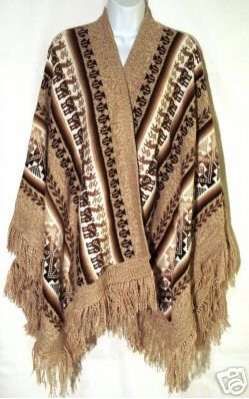
Sanyork Promotes Artisans in a Poor Community of Lima
Tiana Reid — February 8, 2012 — Social Good
Founded in 2001, Sanyork is a social business that is a member of the Fair Trade Federation. By working with artisans in Peru, they sell a variety of products including accessories, stone carvings, jewelry, musical instruments, weaving, apparel, metal works, pottery, gourds and alpaca fur rugs.
Sanyork employs over 60 full-time artisans in safe working conditions. Supporting children is also an important component of the business model, which they do by providing clothing, food and school supplies.
"Our goal is to alleviate poverty and provide well remunerated work among struggling artisans in our community of San Juan de Lurigancho, a heavily populated and poor district of Lima-Peru," write Sanyork on their website. "We’ve organized our Lima operation to accept and train young artisans through mentorships and to train single unemployed women with children in hand crafts."
Contact Information
Sanyork website
Sanyork on Facebook
Sanyork on Twitter
Sanyork employs over 60 full-time artisans in safe working conditions. Supporting children is also an important component of the business model, which they do by providing clothing, food and school supplies.
"Our goal is to alleviate poverty and provide well remunerated work among struggling artisans in our community of San Juan de Lurigancho, a heavily populated and poor district of Lima-Peru," write Sanyork on their website. "We’ve organized our Lima operation to accept and train young artisans through mentorships and to train single unemployed women with children in hand crafts."
Contact Information
Sanyork website
Sanyork on Facebook
Sanyork on Twitter
Trend Themes
1. Socially Responsible Manufacturing - Opportunity to promote fair trade practices to uplift small artisan communities.
2. Ethical Supply Chain - Creating a transparent, ethical supply chain for artisan products that uplift communities.
3. Mentorship Programs for Artisans - Opportunity to provide mentorship programs to young artisans and train single unemployed women in hand crafts.
Industry Implications
1. Craft and Artisanal Goods - Craft and artisanal goods industries can benefit from socially responsible manufacturing practices and creating ethical supply chains.
2. Social Enterprises - Social enterprises can promote the upliftment of small artisan communities through fair trade practices and mentorship programs.
3. Non-profit Organizations - Non-profit organizations can collaborate with artisan communities to provide mentorship, training and necessary resources.
5.9
Score
Popularity
Activity
Freshness























